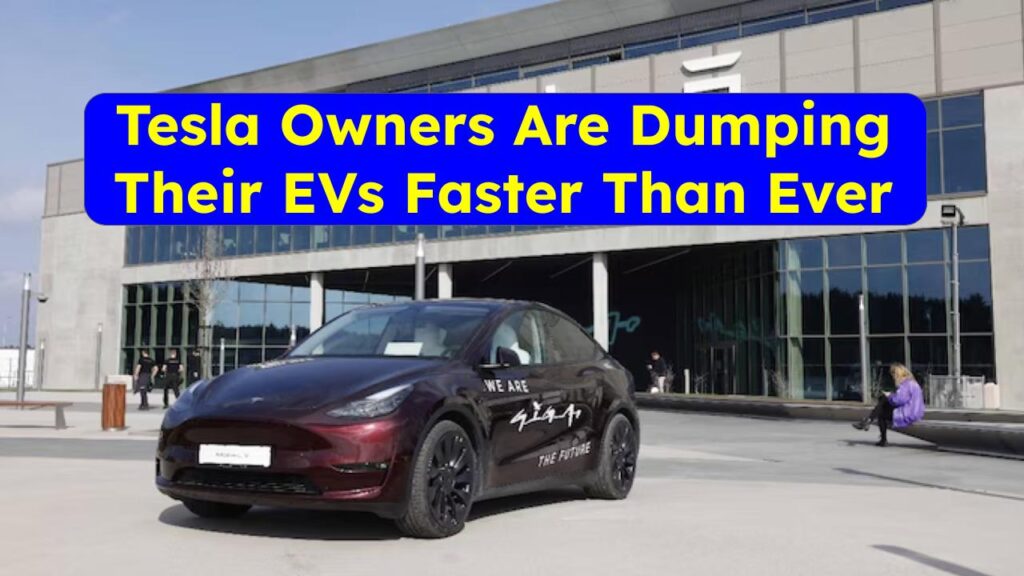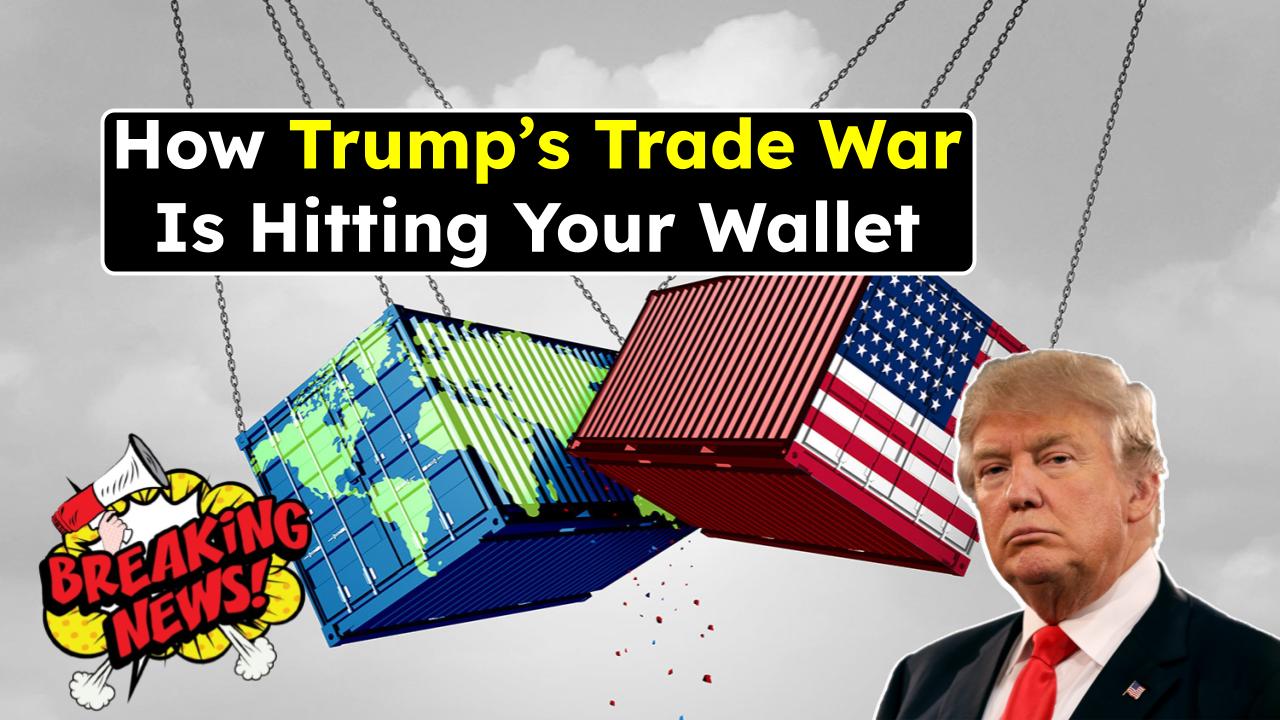
Tesla, once the undisputed leader in the electric vehicle (EV) market, is facing a surprising trend: Tesla owners are trading in their EVs at record levels, according to a recent analysis by Edmunds, a leading car shopping website. This shift comes at a time when Tesla’s CEO, Elon Musk, has taken on a controversial role in the White House, and the company is grappling with increased competition, declining brand loyalty, and a volatile stock market. In this article, we’ll explore why this is happening, what it means for the EV industry, and how Tesla can navigate these challenges.
Tesla Owners Are Dumping Their EVs Faster Than Ever
| Key Insight | Data/Statistic |
|---|---|
| Tesla trade-ins hit record levels | March 2025 saw the highest share of Tesla trade-ins for non-Tesla vehicles. |
| Tesla’s U.S. sales decline | Tesla sales dropped 11% year-over-year in January 2025. |
| Tesla’s brand value decline | Tesla’s brand value fell by 26% ($15 billion) in 2024. |
| Elon Musk’s public recognition | Only 2% of U.S. car shoppers were unfamiliar with Musk in 2024. |
| Tesla stock performance | Tesla’s stock price dropped 42% in 2025. |
The record levels of Tesla trade-ins mark a significant moment for the EV industry. While Tesla remains a pioneer in electric vehicles, the company must address its challenges head-on to maintain its leadership position. By focusing on innovation, customer satisfaction, and brand trust, Tesla can navigate this turbulent period and continue to shape the future of sustainable transportation.
Why Are Tesla Owners Trading in Their EVs?
1. Elon Musk’s Polarizing Role in Government
Since January 2025, Elon Musk has been a central figure in the second Trump administration, leading the Department of Government Efficiency (DOGE). His aggressive policies, including slashing federal workforce numbers and accessing sensitive government data, have sparked widespread controversy. This has led to protests targeting Tesla facilities and even acts of vandalism against Tesla stores and charging stations.
Musk’s political involvement has created a brand perception problem for Tesla. Many consumers associate Tesla directly with Musk, and his divisive actions have caused some loyal customers to reconsider their support for the brand.
2. Increased Competition in the EV Market
Tesla is no longer the only player in the EV game. Legacy automakers like Ford, Chevrolet, and Volkswagen have ramped up their EV production, offering competitive pricing, advanced technology, and a wider range of models. According to S&P Global Mobility, Tesla’s U.S. sales declined by 11% year-over-year in January 2025, while competitors gained market share.
Jessica Caldwell, head of insights at Edmunds, notes:
“Shifts in Tesla consumer sentiment could create an opportunity for legacy automakers and EV startups to gain ground. As Tesla brand loyalty and interest wavers, those offering competitive pricing, new technology, or simply less controversy could capture defecting Tesla owners and first-time EV buyers.”
3. Declining Brand Value and Stock Performance
Tesla’s brand value has taken a hit, falling by 26% in 2024, according to Brand Finance. This marks the second consecutive year of decline. Additionally, Tesla’s stock price has plummeted by 42% in 2025, reflecting investor concerns about the company’s future.
4. Consumer Sentiment and Loyalty
Edmunds’ data shows that shopping for new Tesla models on its platform dropped to its lowest level since October 2022. While many Tesla owners trade in their vehicles for newer Tesla models, a growing number are opting for non-Tesla EVs. This suggests that Tesla’s once-strong brand loyalty is eroding.
What Does This Mean for the EV Industry?
The shift in Tesla trade-ins represents a turning point for the EV market. Here’s what it could mean:
- Opportunities for Competitors: Legacy automakers and EV startups have a chance to attract Tesla defectors by offering better pricing, technology, and customer experience.
- Increased Innovation: As competition heats up, we can expect more innovation in EV technology, charging infrastructure, and sustainability practices.
- Changing Consumer Preferences: Consumers are becoming more discerning, prioritizing factors like brand reputation, affordability, and environmental impact over brand loyalty.
Read Also: How Tariffs Are Secretly Driving Up Your Everyday Costs
How Can Tesla Bounce Back?
Tesla isn’t out of the game yet. Here are some steps the company can take to regain its footing:
- Rebuild Brand Trust: Tesla needs to distance itself from political controversies and focus on its core mission: accelerating the world’s transition to sustainable energy.
- Enhance Customer Experience: Improving customer service, expanding charging networks, and offering more affordable models could help win back consumers.
- Innovate and Differentiate: Tesla must continue to lead in EV technology, whether through advancements in battery life, autonomous driving, or energy efficiency.
- Address Stock Market Concerns: Transparent communication with investors and a clear strategy for growth could help stabilize Tesla’s stock price.
Tesla Owners Are Dumping Their EVs Related FAQs
1. Why are Tesla owners trading in their cars?
Tesla owners are trading in their cars due to a combination of factors, including Elon Musk’s controversial political role, increased competition from other EV makers, and declining brand loyalty.
2. What are Tesla’s biggest competitors?
Tesla faces stiff competition from legacy automakers like Ford, Chevrolet, and Volkswagen, as well as EV startups such as Rivian and Lucid Motors.
3. How has Tesla’s stock performance been affected?
Tesla’s stock price has dropped by 42% in 2025, reflecting investor concerns about the company’s future and Musk’s political involvement.
4. Can Tesla recover from this decline?
Yes, Tesla can recover by rebuilding brand trust, enhancing customer experience, and continuing to innovate in EV technology.
5. What does this mean for the future of EVs?
The shift in Tesla trade-ins signals a more competitive and dynamic EV market, with opportunities for other automakers to gain market share and drive innovation.
















